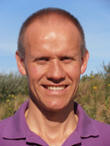
|
WYKŁADOWCY LECTURERS |
NOTE BIO |

DOMINIEK MAES |
DOMINIEK MAES – Belgia
•
Belgium
•
Belgien
Prof. Maes jest profesorem zwyczajnym i szefem Unit Porcine
Health Management w Faculty of Veterinary Medicine of Ghent
University w Belgii. Odpowiedzialny
jest za różnego rodzaju kursy z medycyny trzody chlewnej i
hodowli zwierząt, w tym klinicznego nauczania studentów podczas
zajęć praktycznych na fermie. Jego główne obszary badawcze
obejmują choroby układu oddechowego, ze szczególnym naciskiem na
Mycoplasma hyopneumoniae,
produkcja loch i reprodukcja, salmonella u świń oraz
antybiotykoterapia i oporność. Obecnie jego zespół naukowy
składa się z 12 doktorantów. Ma ponad 220 artykułów naukowych
opublikowanych w międzynarodowych czasopismach specjalistycznych
i ponad 430 krajowych i międzynarodowych prezentacji
konferencyjnych.
Obecnie jest prezesem belgijskiego
oddziału IPVS, członkiem zarządu i byłym prezesem European
College of Porcine Health Management,
wiceprezesem European Board of Veterinary Specialisation,
dyrektorem Institute for Continuing Professional Development of
the Faculty of Veterinary Medicine w Ghent University i
redaktorem czasopisma naukowego Livestock Science.
Prof. Maes is full-professor and head of the Unit Porcine Health
Management at the Faculty of Veterinary Medicine of Ghent
University Belgium. He is responsible for various courses on pig
medicine and animal production, including clinical teaching of
students during herd visits. His main research areas include
respiratory diseases, with emphasis on
Mycoplasma hyopneumoniae,
sow reproduction and production, Salmonella in pigs and
antimicrobial use and resistance. His research unit currently
comprises 12 PhD students. He has more than 220 publications in
international peer-reviewed journals, and more than 430
presentations during national and international conferences. He
is currently president of IPVS Belgian branch, Board member and
past-president of the European College of Porcine Health
Management, Vice-President of the European Board of Veterinary
Specialisation, Director of the Institute for Continuing
Professional Development of the Faculty of Veterinary Medicine
at Ghent University, and section Editor of the scientific
journal Livestock Science.
Prof. Maes ist ein ordentlicher Professor und Leiter der
Abteilung für Schweinegesundheitsmanagement auf der Fakultät für
Tiermedizin der Universität Gent in Belgien. Er ist
verantwortlich für verschiedene Fortbildungsveranstaltungen über
Schweinemedizin und Tierproduktion, einschließlich des
klinischen Unterrichts von Studenten während Herdenbesuchen. Die
Hauptfelder seiner Forschung sind die Erkrankungen der Atemwege,
mit dem Schwerpunkt die
Mycoplasma hyopneumoniae-Infektionen, die Sauenproduktivität
und -fortpflanzung, Salmonella bei Schweinen, Anwendung
und Resistenzen von antibakteriellen Medikamenten. Seine
Forschungseinheit besteht zur Zeit aus 12 PhD Studenten. Er hat
mehr als 220 Publikationen in internationalen Fachzeitschriften
und über 430 Präsentationen auf In- und Ausländischen
Konferenzen. Er ist der amtierende Präsident der Belgischen
Abteilung von IPVS, Vorstandsmitglied und ehemaliger
Vorsitzender des Europäischen Colleges für
Schweinegesundheitsmanagement, Vize-Präsident der Europäischen
Gesellschaft für Tierärztliche Spezialisation, Direktor des
Instituts für Berufliche Weiterbildung der tierärztlichen
Fakultät der Uni Gent und Sektionsredakteur für das
Wissenschaftsjournal Livestock Science.
****************************************************************************************
A critical
reflection on intensive pig production regarding health and
biosecurity
Intensive pig production systems are needed to cover the
increasing demand for pork worldwide. Apart from the benefits of
these systems, it is also important to consider the weaknesses
and/or potential risks. Prof. Maes will make a critical
reflection on intensive pig production, with emphasis on animal
health, welfare and performance. Animals in intensive production
systems are continuously in a fragile balance. Optimal
management, biosecurity and nutrition are needed to maintain
optimal health and production targets. Vaccination and
medication may be needed as additional control measures against
diseases. The rule of thumb is that generally “prevention is
better than cure”.
Krytycznie spojrzenie na utrzymanie zdrowia i bioasekurację w
intensywnej produkcji trzody chlewnej
Systemy intensywnej produkcji trzody chlewnej są niezbędne ze
względu na rosnące zapotrzebowanie na wieprzowinę na całym
świecie. Poza jednak wyraźnymi korzyściami płynącymi z ich
wykorzystania, trzeba pamiętać o ich słabościach i/lub
potencjalnym ryzyku wynikającym z ich stosowania. Prof. Maes
przedstawi swoje krytyczne spojrzenie na intensywną produkcję
trzody chlewnej, ze szczególnym uwzględnieniem utrzymania
zdrowia zwierząt, dobrostanu oraz zapewniania wysokiej
produkcyjności. Można bowiem powiedzieć, że zwierzęta w
intensywnych systemach produkcyjnych są stale na krawędzi. Do
utrzymania ich optymalnego stanu zdrowia oraz uzyskania
zaplanowanych wyników produkcyjnych konieczne jest optymalne
zarządzanie, bioasekuracja oraz żywienia. Jako dodatkowe
narzędzie do zwalczania chorób konieczne mogą okazać się
szczepienia czy podawanie określonych leków. Podstawową zasadą w
tym przypadku jest to, że „zapobieganie jest znacznie lepsze niż
leczenie”.
|